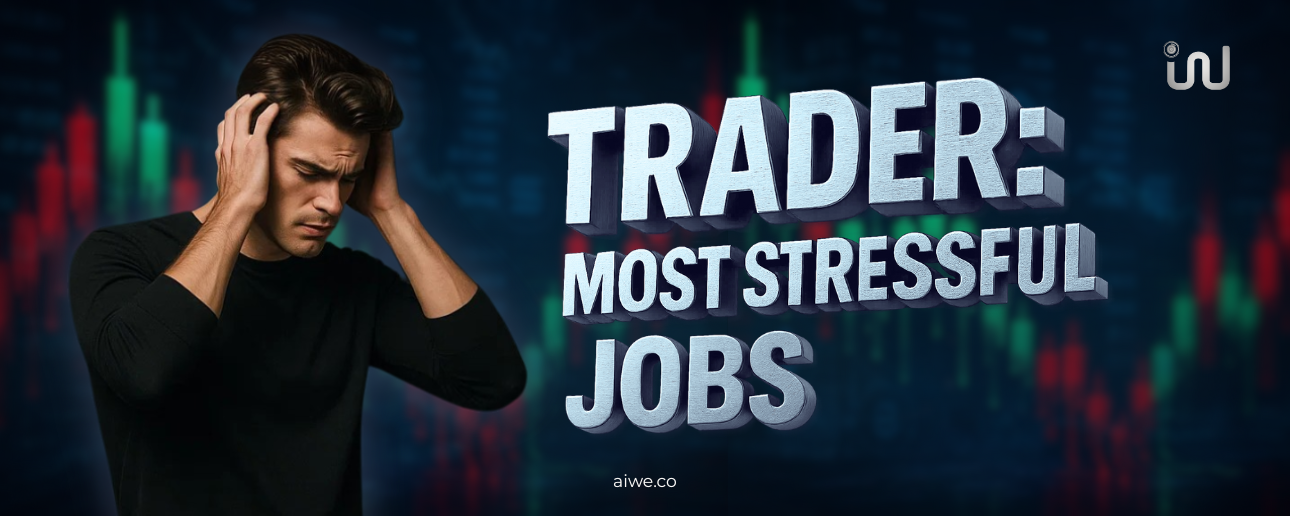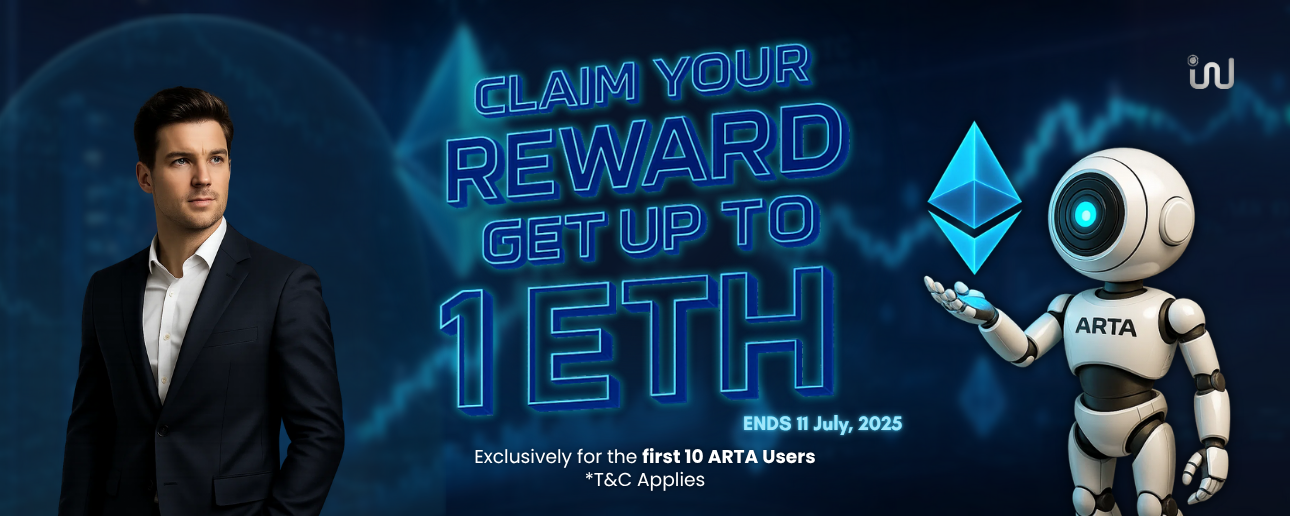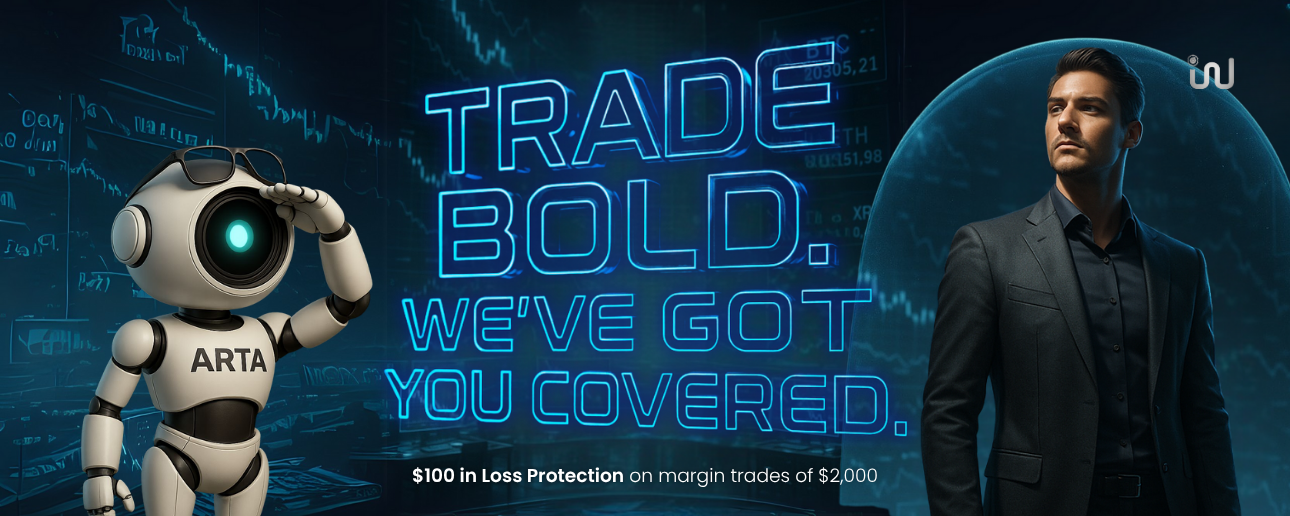By AIWE's Learn, Published on 4 months ago

In the world of high finance, speed is currency.
Every second counts. Every trade can make-or break-millions. And behind the flickering green and red of trading screens are humans making lightning-fast decisions, navigating chaos with precision, and carrying the weight of massive expectations on their shoulders.
According to a growing body of evidence-most notably from a Bloomberg-featured industry survey-traders rank among the most high-stress professionals in modern finance. The mental and emotional toll? Far deeper than it appears on the surface.
The Unseen Pressure Behind the Screens A 2023 survey by Buyside Trading Community, covering 92 trading leads managing over $20 trillion in assets, painted a stark picture:
- 1 in 5 traders have considered leaving the profession due to the mental strain.
- Over 50% know colleagues who already have.
- And a staggering 27% sought therapy in the past year-an exponential rise from previous years.
These are not isolated outliers. These are symptoms of a system wired for relentless performance.
Why Traders Are Burning Out?
1. Time is Ruthless Wall Street analysts and junior bankers routinely report 80-100 hour weeks, often sacrificing sleep, health, and personal relationships. Many describe getting as little as four hours of sleep per night. "I barely have time to eat. I work, sleep, and repeat," one junior banker told the New York Post. Their health scores? Averaging 2-3 out of 10, self-reported.
2. Mental Health: Still a Taboo Topic Even post-pandemic, companies have quietly scaled back wellness programs. The same Buyside survey showed:
- Only 3% of firms still offer mental health training for managers.
- 18% of respondents say their firms provide no mental health guidance at all, up from 12% in 2022.
It's a silent crisis. One trader noted: "You're expected to perform like a machine, but nobody asks if the machine needs maintenance."
3. All the Responsibility, None of the Control Compliance officers-those responsible for preventing legal risk-face another brutal irony. They carry massive responsibility but are rarely given the authority or tools to drive change. One report described them as: "Holding the bag when things go wrong, but never invited to the table when decisions are made."
This lack of agency only deepens the psychological fatigue.
The Human Toll
One tragic example is Leo Lukenas III, a 35-year-old associate at Bank of America, who died from a cardiac arrest after reportedly working up to 100 hours a week. While direct causation hasn't been established, his death sparked renewed scrutiny of the financial world's obsession with productivity at all costs. What's more revealing is the sharp rise in therapy, medication, and career shifts among trading professionals. Burnout is no longer an exception-it's becoming the norm.
Why This Matters-And What Needs to Change The financial sector's performance culture-once a badge of honor-is beginning to crack. Leaders across asset management and hedge funds are waking up to a truth long ignored: Performance without sustainability isn't performance-it's attrition.
Calls for reform are growing louder:
- More firms are exploring flexible schedules and mental health training.
- Discussions around psychological safety are entering boardrooms.
- There's a rising demand for smarter systems that augment human decision-making rather than overwhelm it.
Toward a Smarter Future: Trading with Support, Not Sacrifice
In an industry where milliseconds matter, technology is no longer a luxury-it's a necessity. From AI-powered decision engines to automated risk management systems, modern trading tools are shifting the paradigm:
- They reduce the cognitive load on traders.
- They execute strategies without emotional interference.
- They allow humans to step back, reflect, and preserve energy for critical thinking-not firefighting.
The smartest traders today aren't the fastest-they're the ones who leverage systems that don't sleep, don't panic, and don't burn out. And in a world where capital never sleeps, perhaps it's time we let the machines take the night shift-so the humans behind them can breathe.
Sources:
- Financial News London: Traders head for exit over mental health fears
- Financial News London: Compliance Officers Are Burning Out
- New York Post: Junior Bankers Report 100-Hour Weeks

